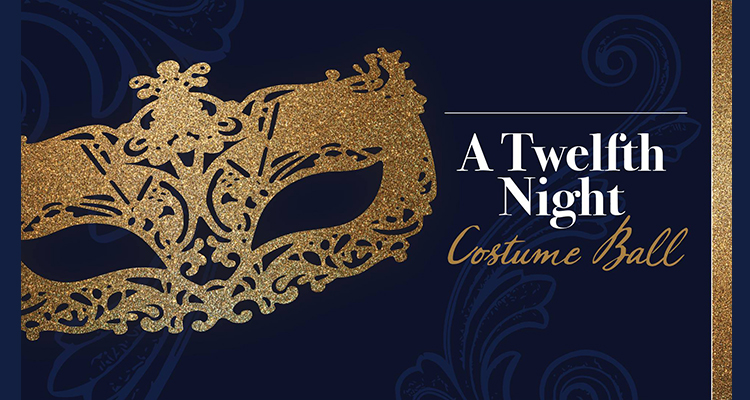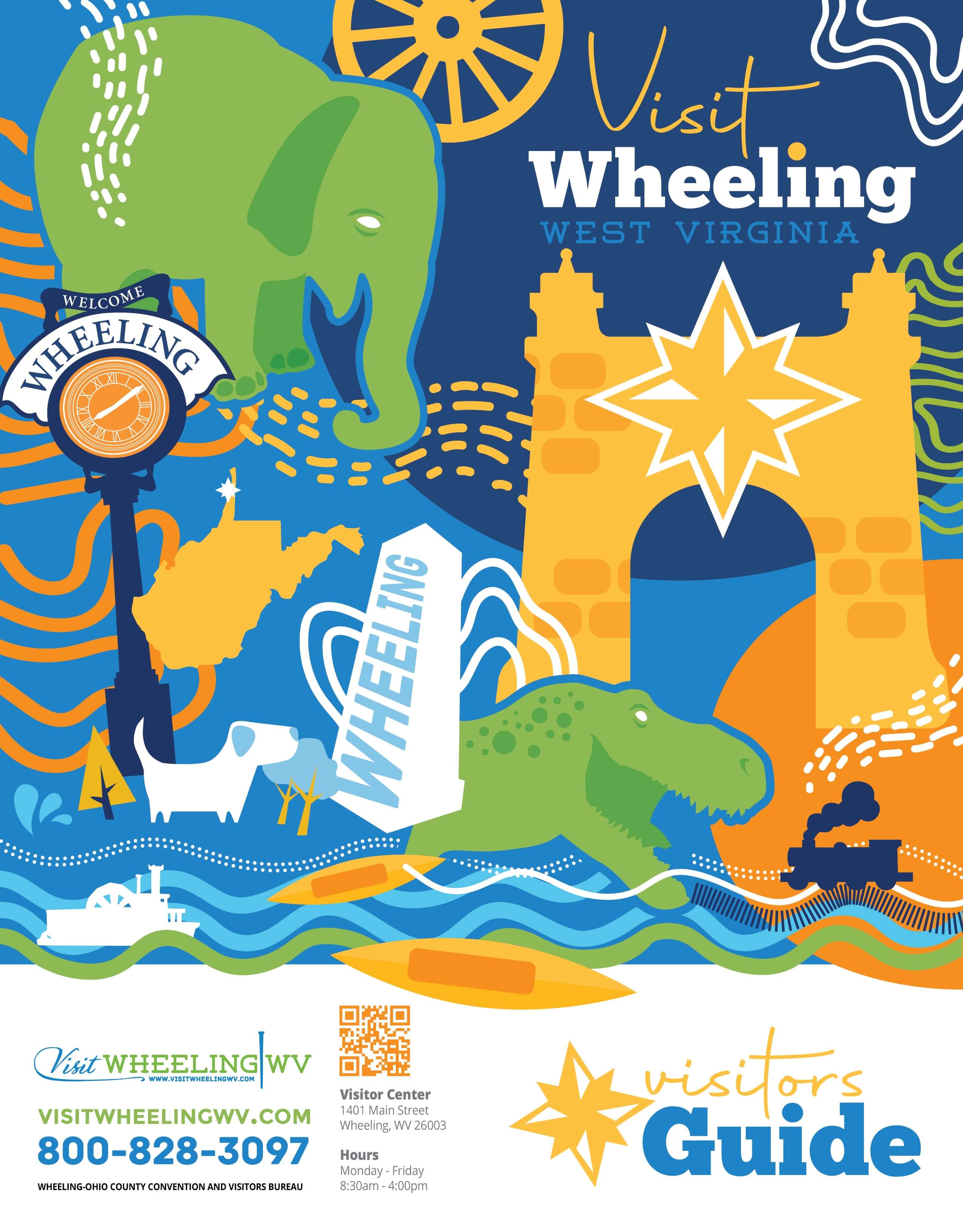
Twelfth Night Ball Celebrates Past, Looks to Future
By Christina Fisanick
The great City of Wheeling turns 250 years old in 2019. Yes, Wheeling is older than the United States. It was founded by the Zane family when Virginia was still a colony and seven years before the Declaration of Independence was signed. As you might imagine, many celebrations are in store to laud this momentous anniversary, and the year kicks off with a Twelfth Night Costume Ball at Oglebay’s Glessner Auditorium on Jan. 5.
Jay Frey, head of the Wheeling 250 Committee, proposed the idea of a Twelfth Night Ball as a way of encouraging all of Wheeling to come out and celebrate our founding and our bright future that lies ahead.
“We haven’t had a ball of this type in many years in Wheeling,” he said as he gave me the details of the upcoming fete. Attendees will be treated to a delicious buffet, gourmet cocktails and live music from local favorite, Hit Play. Costumes are expected, and guests are encouraged to dress up as anyone from 1769-2019.
The tradition of Twelfth Night masquerade balls dates back to at least the Medieval period when revelers would dance and drink the night away to celebrate the last day of the Christmas season. Like other aspects of Twelfth Night merriment, the day on which it is celebrated has varied throughout history. It all depends on how Christmas is counted. If it is counted as the first day of the 12 days of Christmas, then Twelfth Night is celebrated on the eve of the Epiphany, Jan. 5. But if day one is counted as Dec. 26, then Twelfth Night parties are held on the Epiphany itself, Jan. 6.
The Epiphany, of course, is the day in which Christians acknowledge the wise men — Melchior, Caspar and Balthazar — arrived in Bethlehem to meet the baby Jesus. According to Matthew 2:11, they brought gifts of gold, frankincense and myrrh. Most sources note that Christians in the West began celebrating the Epiphany in the fourth century. In fact, Bruce David Forbes notes in his book, Christmas: A Candid History, that even up to the 19th century, the Epiphany was celebrated with as much gusto and pageantry as Christmas Day.
Twelfth Night balls centered on food, drink and being merry. A centerpiece of many of such parties included a special cake into which was baked a pea and a bean. Dennison’s Christmas Book (1923) states that “the man who finds the bean in his slice of cake becomes King for the night, while the lady who finds a pea in her slice of cake becomes Queen for the night.” They then sit on a throne, and “paper crowns, a scepter and, if possible, full regalia are given them.” The party continues with eating, dancing, singing and charades.
Shakespeare’s play, Twelfth Night, Or What You Will, was meant to be performed as entertainment on Twelfth Night. The first record of it being performed was made in 1602. The play employs some of the major themes of Twelfth Night parties, including masquerade. One of the main characters, Viola, washes ashore after a shipwreck. To find work, she dresses up as a man whom she calls Cesario. In the process, Viola (as Cesario) falls in love with her employer, King Orsino, who is in love with Lady Olivia. Lady Olivia falls in love with Cesario. Comedic hijinks ensue, and all’s well that ends well, as the saying goes.
It seems fitting, then, that Wheeling transitions from the end-of-the-year holidays to the beginning of an entire year of birthday bashes with a ball modeled after this centuries-old tradition. Donna Glass, Twelfth Night Ball committee chair, encourages the city to share in this opening festivity. In addition to dancing, she says that “long tables reflecting parties of hundreds of years ago will give an ‘olden days’ flavor to the evening.” In a sense, the Twelfth Night Costume Ball will demonstrate what Wheeling at 250 does best: celebrate our past with a hopeful look toward the future.
After much thought, I have finally decided on my costume. Although it would be logical, perhaps, for me to dress up as Wheeling writer Rebecca Harding Davis, I eschewed that idea in favor of Sarita Oglebay, Earl Oglebay’s only child, or Sister Ignatius, a Civil War-era nun who saved many lives of both the Union and Confederate soldiers during her time at Wheeling Hospital. In the end, though, I made my choice. Should you attend the ball on Jan. 5, you will see me clad in a fine gown with my hair upswept as I portray Eleanor Steber (1914-1990), a world-renowned opera singer born and raised right here in Wheeling. She made her debut at the Metropolitan Opera in 1940 and was among their greatest performers through 1961. Later, she went on to teach at Julliard and gave private lessons. She is buried in Greenwood Cemetery here in Wheeling.
Come spend your Twelfth Night dancing away the post-holiday blues, disguised as your favorite person, place or thing. I can think of no better way to acknowledge Wheeling’s contemporary reality than by saying all are welcome here. There is room at the table for everyone.
Tickets can be purchased in one of three ways: volunteers Missy Ashmore, Laura Mull and Emily Freemen are selling hard-copy tickets; online purchases can be made at Wheeling250.net; and by calling Donna Glass at 304-281-0051. Advanced tickets are $75 per person until Dec. 27 and $100 per person at the door.
Other upcoming Wheeling 250 events include art shows, lectures, films and so much more. To see a full schedule of activities, visit Wheeling250.net.
